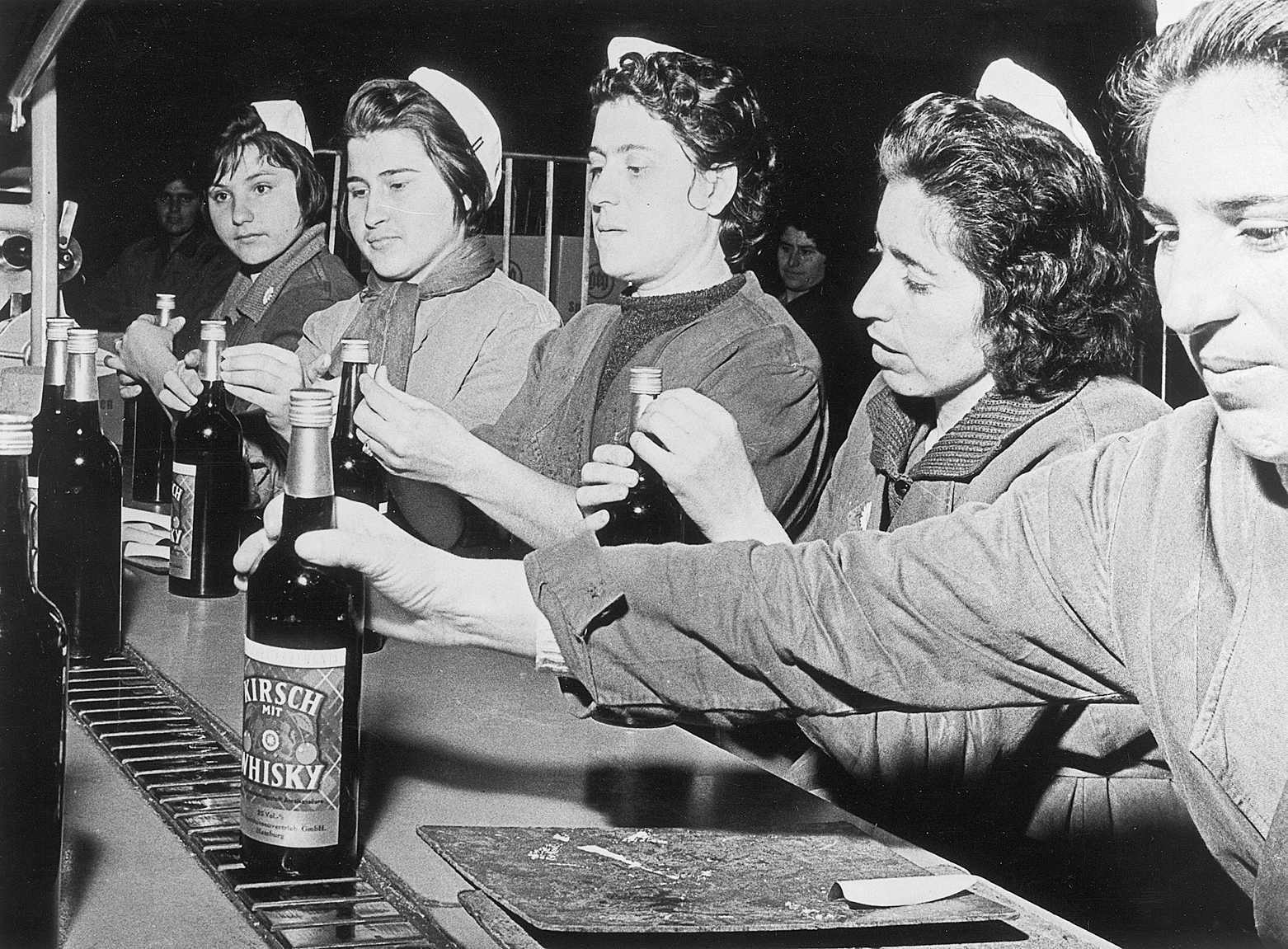A History of World Societies:
Printed Page 983
A History of World Societies Value
Edition: Printed Page 997
Western Europe’s Postwar Challenge
If in 1945 much of western Europe was devastated by the war, the years immediately following were often bleaker: the continent faced mass unemployment, shortages of food and fuel, physical destruction of many cities and much infrastructure, and the dislocation of millions of people. But in the decades that followed, western Europe’s political recovery was unprecedented. Democratic governments took root throughout western Europe and thrived in an atmosphere of civil liberties and individual freedom. Progressive Catholics and their Christian Democratic political parties were particularly influential. In Italy Alcide De Gasperi (1881–
The Cold War prevented the allies occupying Germany from finding a political settlement, resulting in a partition between a Soviet-
European nations followed different paths to post war recovery. West Germany balanced a free-

The experience of close cooperation among European states for Marshall Plan aid led European leaders to pursue economic unity. On May 9, 1950 (now celebrated as Europe Day), French foreign minister Robert Schuman proposed an international organization to control and integrate all European steel and coal production. France, West Germany, Italy, Belgium, the Netherlands, and Luxembourg joined together in 1952 for this purpose. In 1957 the six nations of the Coal and Steel Community signed the Treaty of Rome, creating the European Economic Community, popularly known as the Common Market. The treaty’s primary goal was a gradual reduction of all tariffs among the six in order to create a single market almost as large as that of the United States.
The Common Market was a great success, encouraging hopes of rapid progress toward political as well as economic union. In the 1960s, however, a resurgence of more traditional nationalism in France led by Charles de Gaulle, French president from 1958 to 1969, frustrated these hopes. Viewing the United States as the main threat to genuine French (and European) independence, he withdrew all French military forces from NATO and developed France’s own nuclear weapons. De Gaulle also thwarted efforts by Denmark, Ireland, Norway, and the United Kingdom to join the Common Market. (All but Norway were finally admitted after de Gaulle left office.)
Migrant laborers, mainly from southern Italy, North Africa, Turkey, Greece, and Yugoslavia, also shaped western European societies and drove their economic recovery. Tens of millions of migrant workers made it possible for western European economies to continue to grow beyond their post war labor capacity. This was especially important in Germany, where they filled gaps left by the loss of a large proportion of the adult male population during the war. Governments at first labeled the migrants as “guest workers” to signal their temporary status, though in practice many chose to remain in their new homes. As their communities became more settled, migrants faced a backlash from majority populations and came to resent and resist their treatment as second-